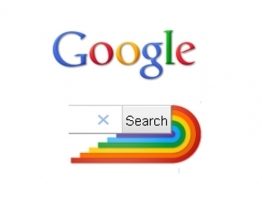
One of the most powerful and ubiquitous online entities in the world is using its influence to try to force tolerance of homosexuality on the entire world. Google, which in June banned guns and ammunition from its online shopping site as unsafe for families, announced the launch of its “Legalize Love“ campaign July 7 to pressure countries that either do not recognize “gay rights” or outlaw homosexual behavior altogether to change their laws.
In its rollout of the project, the Fortune 500 company attempted to frame its crusade as an attempt to promote safer conditions for homosexuals in countries where Google has offices. “We want our employees who are gay or lesbian or transgender to have the same experience outside the office as they do in the office,” Mark Palmer-Edgecumbe, Google’s head of Diversity and Inclusion for Europe, the Middle East, and Africa told the Global LGBT Workplace Summit in London. He said that Google is initiating the campaign in both Singapore and Poland, with plans to extend the crusade to other countries that don’t embrace homosexuality.
Palmer-Edgecumbe specifically targeted Singapore in his press conference, saying that the country “wants to be a global financial center and world leader and we can push them on the fact that being a global center and a world leader means you have to treat all people the same, irrespective of their sexual orientation.”
According to Fox News, the search-engine giant insists its campaign is not politically motivated, but believes discrimination against “gays” hurts the international business climate. “We have had a number of instances where we have been trying to hire people into countries where there are these issues and have been unable to put the best person into a job in that country,” Fox quoted Palmer-Edgecumbe as saying.
But Google’s recent history demonstrates that it has become a favored tool of homosexual activism. According to the Christian Post, back in 2011 one of Google’s website “doodles,” which appear daily on its homepage, “celebrated gay pride month by having the LGBT rainbow pop up alongside the Google search bar when users search for ‘pride-related’ terms, such as gay, lesbian, homosexuality, LGBT, bisexual, and transgender.”
Additionally, in 2008 Google aggressively opposed California’s Prop. 8 referendum that proposed to define marriage in the state as only between a man and a woman. Google co-founder Sergey Brin wrote that the “chilling and discriminatory effect of the proposition on many of our employees … brings Google to publicly oppose Proposition 8 … We hope that California voters will vote no on Proposition 8 — we should not eliminate anyone’s fundamental rights, whatever their sexuality, to marry the person they love.”
California voters disagreed and passed the referendum, which has since been under constant assault by homosexual groups and activist judges determined to overturn the law by any means.
The launch of Google’s “Legalize Love” campaign met with applause and support from other corporate and government entities attending the London homosexual summit. “What we have found is that a partnership between corporations and the U.S. government is very powerful,” said an approving Claire Lucas of the U.S. Agency for International Development, which also uses its clout to aggressively push for programs that promote contraception and abortion in third world countries. “We are working with some NGOs and some corporations on a global LGBT partnership. The corporations are co-funding with the U.S. government these civil society organizations around the world.”
Bob Amnnibale, a Citigroup executive, pointed out the tremendous pressure a company like Google can exert. “The fact that Google is so virtual and its appeal is very wide and young demographically means it can help spread messaging very, very quickly,” Amnnibale told the summit. “If you are trying to change something, governments can exert diplomatic power, NGOs can martial facts and arguments, but corporations martial economic power. That is something even the most passive of countries will listen to.”
Google’s own online promotion of the campaign appeared to confirm that it would use its power to compel countries to embrace homosexual behavior. “Though our business and employees are located in offices around the world, our policies on non-discrimination are universal throughout Google,” the company warned. “We are proud to be recognized as a leader in LGBT inclusion efforts, but there is still a long way to go to achieve full equality. Legalize Love is our call to decriminalize homosexuality and eliminate homophobia around the world.”



